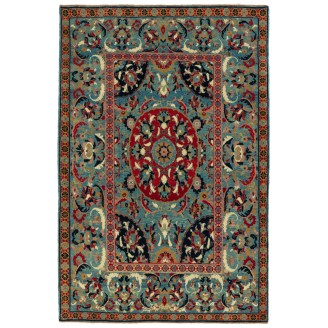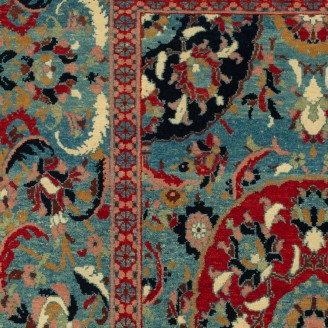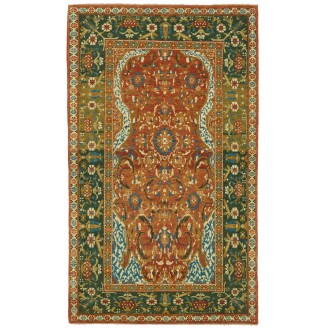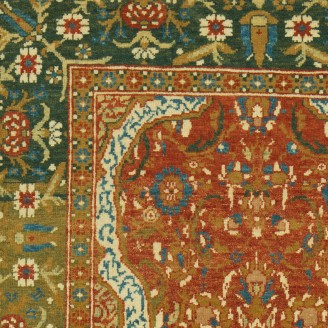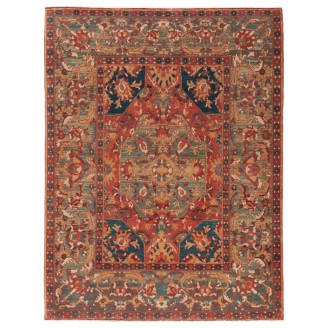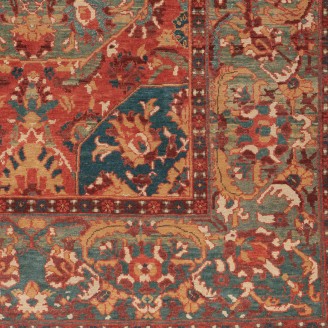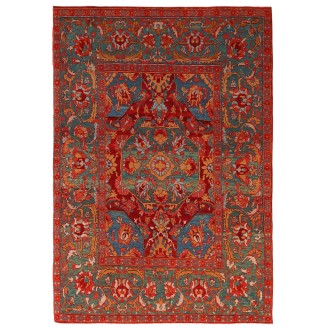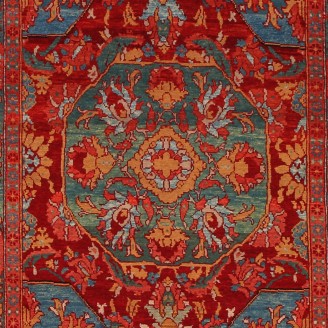Cairene Ottoman Carpet
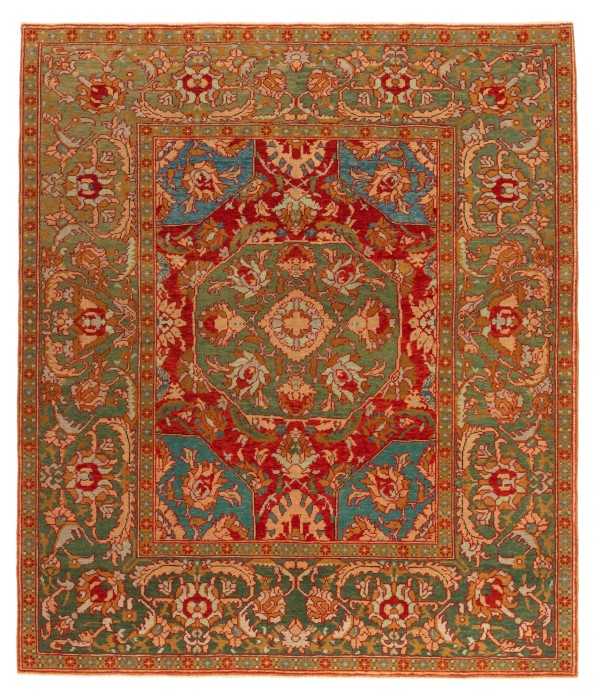
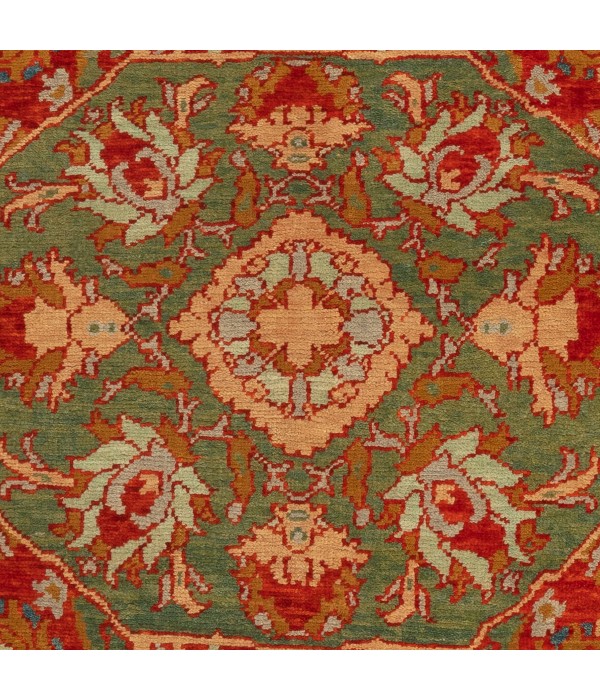
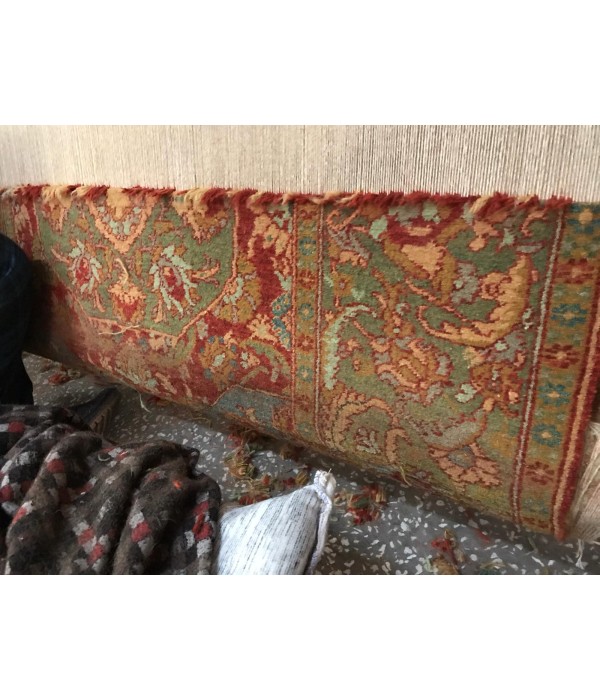
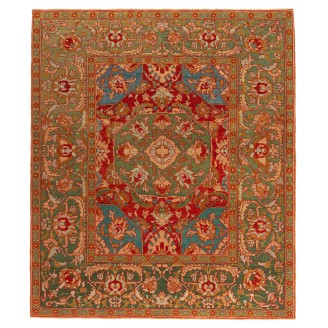
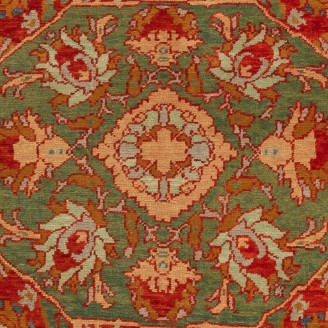
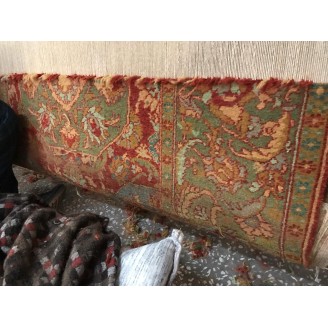
Model: ART00089Cairene Ottoman Carpet
Group: Islamic Rugs Family
Area: Mamluk
Material of Pile: Natural Dyed Hand-spun Wool
Material Warp / Weft: Wool on Wool
Structure: Symmetrical knot on depressed warp inclining to the right
Knots Density: 39x39
Pile (mm): 0
Production Place: Southeastern Anatolia – Adiyaman Province -Gerger
Location: Tokyo
Stock: In Stock
Dimensions:
Turkish Court Manufactury Rugs were woven in the Egyptian workshops founded by Ottoman Empire in the 16th century. Those carpets were woven in Egypt, following the paper cartoons probably created in Istanbul and sent to Cairo at that time.The source of carpet comes from the book Antique Rugs from the Near East, Wilhelm von Bode and Ernst Kühnel, Klinkhardt & Biermann, Berlin 1958, pg.76. Shortly after its conquest by the Osmanli Turks (1517), a change of style was set in Egypt which, due to the establishment of a manufactory working for the court in Istanbul, found a particularly strong expression in the carpet industry. The Cairene Ottoman carpets correspond with those of the previous period both in material and in color range, and the palette is extended only through the more plentiful use of yellow, white, and a few other tints; occasionally, however, they were inclined to be satisfied with the three Cairene basic colors. Nevertheless, if there have been doubts expressed regarding the continuity of their production, these were based entirely upon the fact that the new rugs renounced completely the decorative orientation which had been observed up to that point. Vegetation which at times is naturalistic, at times stylized in a peculiar manner, is deployed luxuriantly and, in forms that are known to us from Turkish wall tiles and brocades, quite fills the field in endless continuation, interrupted by a large or a small medallion, quadrants of which are often repeated in the corners. Carnations, tulips, hyacinths, lilies, peonies, and other flowers, together with gracefully sweeping lancet leaves, sumptuous palmettes, and delicate sprays of blossoms, constitute the rich flora of these carpets, whose borders charm the eye with their elegant solutions for the corner problem, while in the guard stripes almost invariably little rosette-flowers appear all in a row. It is merely by way of exception that we will still find appropriations levied upon the Mamluk tradition, while, on the other hand, the coming revolution in decor is already heralded in a few specimens which we still count as belonging to the earlier group. In pure folk art, such a radical overturn would be quite inconceivable, but then in the operation of a manufactory, the introduction of a completely novel program can be accomplished with a minimum of confusion. With this change of orientation, it was significant that the idea of a governing medallion, even if with a different conception, had already been put to use. The design of this carpet is interpreted and soft colors are chosen by our designers for this carpet.
Color summary: 8 colors in total, most used 4 colors are;
Color summary: 8 colors in total, most used 4 colors are;
- Imperial Red 426 (Madder Root)
- Yellow Green 419 (Henna - Indigo)
- Sunray Color 405 (Henna)
- Burlywood 135 (Spurge - Madder Root)
Dimensions:
4 ft 1 in x 4 ft 9 in ( 126cm x 146cm )
Price:
$3,650
Ex Tax: $3,650

